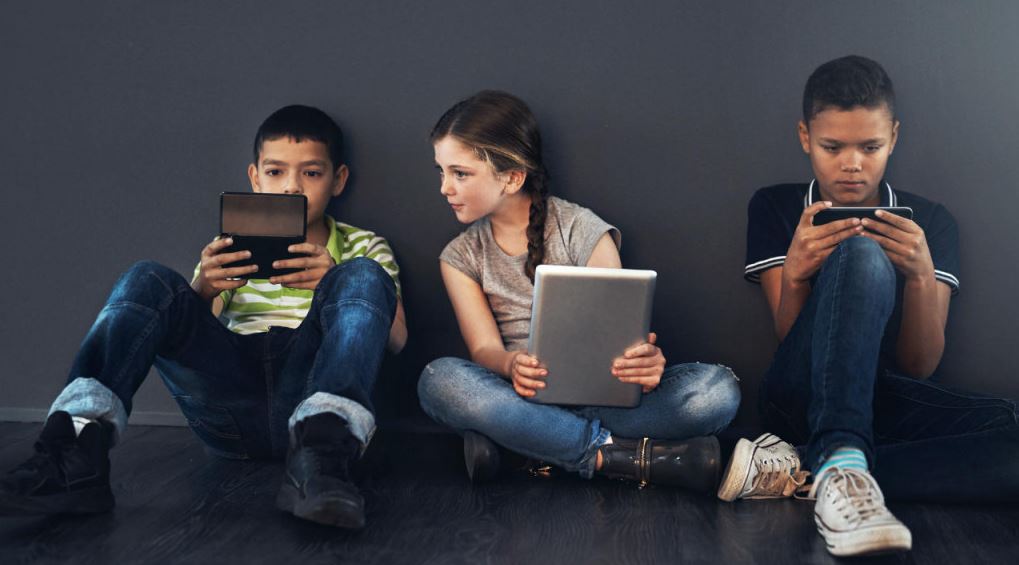Jonas Torrance is a registered Dance Movement Psychotherapist and a behaviour consultant, who has worked with autistic children for over 30 years. He also facilitates training for teachers and parents, and has authored the book Therapeutic Adventures with Autistic Children. In this blog, he offers his top tips on the tricky issue of screen time for autistic children. How much is too much?
I once knew a teacher in an autism school whose pupils were becoming increasingly obsessed with the computers in their classroom. They were focusing on these screens totally in lessons and free time, and seemed unable to engage in other activities. During one holiday, the teacher removed all the computers from the classroom. On their return, the pupils were mystified;

‘where are the computers?’ It was explained that they had been taken away to be fixed. Once the children had a reason and got over the initial disappointment, they settled surprisingly quickly. Out came board games, paper and pens and so on, and they found other things to do. The reason for this is that screen obsessions are in addiction terms, ‘mental’ addictions; strong, but not physical. Thus the withdrawal symptoms are brief and not catastrophic.
In my work as a therapist with autistic children and their families, I have noticed in the last few years a clear increase in questions, issues and concerns around how much time a child should spend on a screen. This is a very live issue for parents and teachers because devices and online activities develop so fast and it’s therefore hard to maintain a consistent line in the household.
Autistic children vary greatly in their need for and attachment to screens. Some are not really interested, whilst others are joined at the hip to their device. Now that we all use screens so much (how do you think I’m writing this?) we can be led to think that having access to a device is almost a human right for even quite young children. If you’re feeling bogged down by this issue with autistic children in your care, it may be useful to bear these simple pointers in mind.
- Actual reality is better than virtual reality
Even the best screens are still two dimensional. Real life is very three dimensional and you can move freely through it. Your child may need a reminder of the pleasures of real life. I recently took a screen-bound young man on a walk up on a hill. He was absolutely transfixed by the view at the top and enthused about it all the way back down.
- Your child may not be as attached to their video game as you think
Very often the children I work with tell me that they use video games as a way of switching off the mind and/or blocking out sensory information and unwanted thoughts. They obviously have to find a game that draws them in enough, but they often admit to me that they are bored. A child who is in this situation needs help to come off the game and learn to relax in other ways.
- Screens are not relaxing
When children with hyperactive and distracted minds play video games, they may feel relaxed, but that’s only because the games hold their mind in one place. Also, the pace of many video games matches the speed of the minds of hyperactive children, so they feel in synchrony with the game. This has its uses, but it is not the same as the whole body experience of lengthening the muscles, moving gently through space, or thinking and talking about things with someone they trust.

- Screens disrupt sleep
There are now devices which reduce blue light waves, and this is relevant to helping us sleep, but the bottom line is that having a light source of any type very close to your face before you go to sleep will definitely not help you have a good night’s rest. It is essential that children and adults have an hour before they go to bed when they are not looking at screens. Quite apart from anything else, this encourages us all to do other interesting things with that time.
- Don’t ask someone to do what you can’t manage yourself
If we want our children to change their screen habits we have to be ready to change our own. It’s not just autistic children who get addicted to screens- we all do. There are very clever people making games, films, programmes and social media that ensure we continue watching. That’s fine. But if we want our children not to fire up the next level or skip onto the next video, we have to be able to do it ourselves. Having whole family based approaches to screens can help an autistic child not feel picked on or singled out.
We all know screens are useful and entertaining, but should we ever spend whole days just doing one, fixed activity? To really get what’s useful about screen life we needs to rediscover its excitement and interest, and we do that best by taking a break- which is what I’m going to do now… So be brave about turning off those screens and actively encourage your children to do the same.
If you would like to read more articles like this and get the latest news and offers on our books about autism, why not join our mailing list? We can send information by email or post as you prefer. You may also be interested in liking our Autism, Asperger’s and related conditions Facebook page.